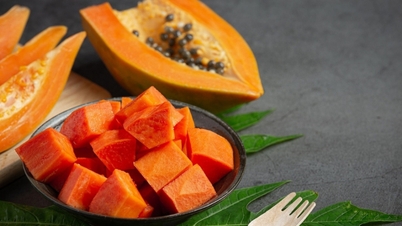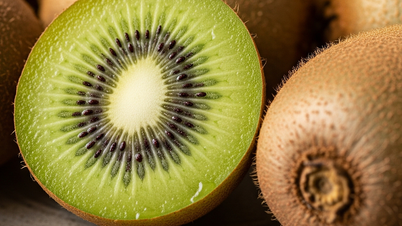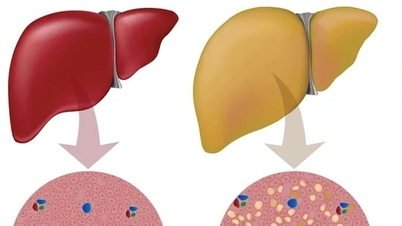 |
| Peaches contain many nutrients but are not good for everyone to eat. (Illustration photo created by AI) |
Peaches are both delicious and nutritious, a summer specialty, and are in season so they are sold everywhere. Peaches contain many nutrients such as vitamin C, vitamin A, vitamin E, and essential minerals such as potassium, magnesium and fiber. Thanks to that, this fruit helps increase resistance, aids digestion, and is good for the heart and skin.
With its sweet, juicy taste, peaches are loved by many people. However, not everyone can eat peaches well. Depending on their physical condition, some people feel good eating peaches, while others find it unpleasant.
Below are 3 groups of people who should not eat peaches because they can easily experience side effects.
People with allergies
Many people wonder why peaches can cause allergies. In fact, this is quite common. Some people feel itchy just by touching the hair on the peach skin and even when peeling the skin, it is still difficult to avoid the tiny hairs coming into contact with the skin. This is a sign of allergy to peach hair.
In addition, peach flesh also contains a lipid transport protein that some people's immune systems mistake for a harmful substance, thereby causing allergic reactions such as itchy skin and tingling in the mouth. Therefore, people with peach allergies should avoid eating this fruit.
People with chronic kidney disease
People with chronic kidney disease often have a reduced ability to excrete potassium from the body, while peaches contain a lot of potassium. According to medical research, 100g of peaches contain about 197mg of potassium. If you eat too much, the amount of potassium in the blood can increase, causing heart rhythm disturbances.
Therefore, people with chronic kidney disease should limit or even avoid eating peaches to protect their health.
People with weak digestive systems
Peaches are sweet, but high in fiber and natural acids, which can irritate the intestinal tract. For people with poor digestion, this can lead to bloating, discomfort, or diarrhea.
In addition, peaches are warm in nature, eating too much can easily cause the body to accumulate heat and dampness. For people with weak spleen and stomach, who already have "dampness and heat" symptoms in their body, eating peaches can make the condition worse.
Source: https://baoquocte.vn/ba-nhom-nguoi-khong-nen-an-qua-dao-de-gap-tac-dung-phu-324046.html




![[Photo] Opening of the 13th Conference of the 13th Party Central Committee](https://vphoto.vietnam.vn/thumb/1200x675/vietnam/resource/IMAGE/2025/10/6/d4b269e6c4b64696af775925cb608560)
![[Photo] Prime Minister Pham Minh Chinh chairs the Government's online conference with localities](https://vphoto.vietnam.vn/thumb/1200x675/vietnam/resource/IMAGE/2025/10/5/264793cfb4404c63a701d235ff43e1bd)

![[Photo] Prime Minister Pham Minh Chinh launched a peak emulation campaign to achieve achievements in celebration of the 14th National Party Congress](https://vphoto.vietnam.vn/thumb/1200x675/vietnam/resource/IMAGE/2025/10/5/8869ec5cdbc740f58fbf2ae73f065076)































































































Comment (0)